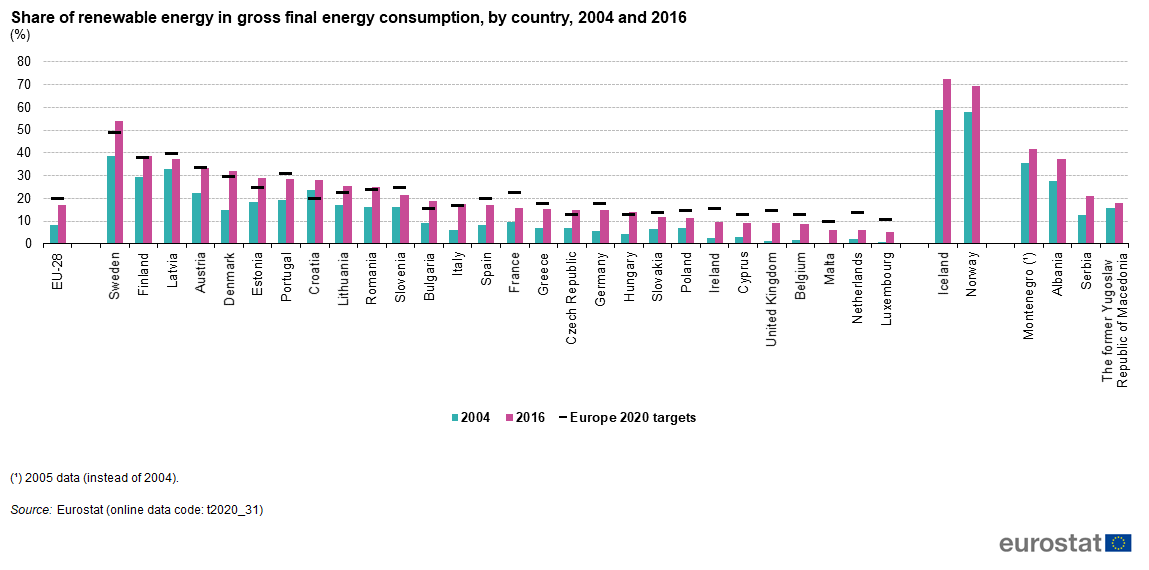
The renewables portfolio standard requires that states develop plans to generate renewable energy. There are four main areas to be focused on: Nevada, California Connecticut, New York and Connecticut. Each state has different rules and regulations related to renewable energy generation. Additionally to identifying renewable energy resources, states must also comply with the standards. Some states are exploring incentives to encourage the construction of nuclear power plants, even though nuclear energy isn't usually considered a renewable resource. Nuclear electricity is not generally considered to be a renewable resource, even though it is virtually carbon-free. These state policies, which are not part of the renewable portfolio standard, are generally called clean energy goals or emission-free power targets.
California
California Renewables Portfolio Standard is a program to promote clean, renewable energy. RPS is designed increase the percentage of renewable energy within the state's electric supply. Investor-owner utilities, small utilities or multijurisdictional providers are required to generate at minimum 33% of their electricity using renewable resources by 2020. The goal is to achieve sixty percent by 2030. It helps stabilize rates and makes the electricity grid more reliable.

Nevada
In 1997, Nevada adopted the Renewables Portfolio Standard (RPS). The standard was later amended to higher standards as technology improved. The goal was to reduce dependence upon fossil fuel-fired power stations and increase the proportion of renewable energy within the electricity supply. The resultant shift in electricity supply can also be seen as a positive development for public health, the environment, energy costs, and public safety. Nevada has a wide range of renewable energy options that can be used by utilities to meet demand.
Connecticut
The Renewables Portfolio Standard (RPS) is a mandate for energy providers in Connecticut to obtain a specified percentage of their electricity from renewable sources by 2020. The RPS currently requires that retailers obtain 20% of their electricity from renewable sources. The state has set a higher goal of 40% renewable energy in 2040. The RPS also requires a state-wide plan to encourage the development and deployment of renewable energy resources. The goal to meet the RPS in Connecticut is ambitious.
New York
The New York State Renewables Portfolio Standard (RPS) aims to increase the share of renewable energy in a utility's electricity portfolio. This goal is consistent the state's Energy Plan. It aims to generate 2,400MW offshore wind by 2030. New York utility companies are required to generate 12.5% of electricity from renewable sources by 2021 and 10% in 2018. The RPS also requires that utilities create demonstration areas for renewable energy.
Puerto Rico
Puerto Rico's state legislature passed a bill that requires utilities to have a minimum of fifty percent renewables portfolio by 2050. California, Hawaii, Washington, D.C., and Washington, D.C. will all be following the same path to achieving a 100% renewable energy goal by 2050. The island has been suffering from high costs associated with fossil fuels. The governor must sign the new law. The bill has two main purposes: to reduce the island’s impact on its environment and to lower its electricity bill.

Maryland
The Renewables Portfolio Standard in Maryland (RPS) is a state requirement for electricity suppliers to meet a certain percentage of renewable energy. This standard applies to both electric companies that offer Standard Offer Service, (SOS), and competitive suppliers. Each year, electricity suppliers file a compliance report with the Commission to verify that they are meeting the renewable requirement. The report will help consumers make informed decisions regarding their energy needs. Maryland must address this problem.